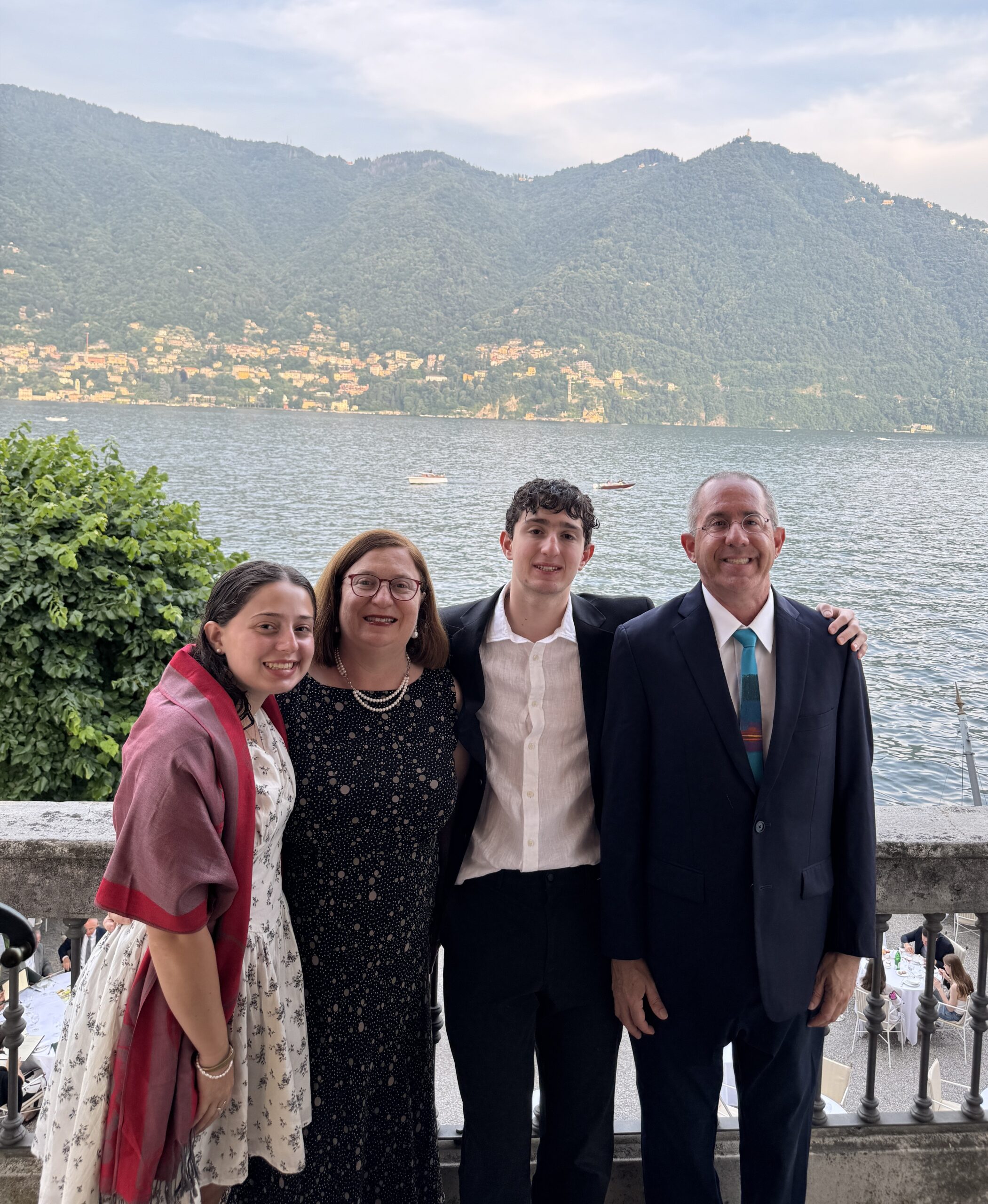
When you look at what most parents try to do for their kids, it seems they want to make sure they get into great schools so that they will have the best chance of monetary success. They also want them to excel at sports and be winners, to win college scholarships and/or to vicariously realize the dreams their frustrated parents didn’t achieve. I’ve had different goals for my kids, and I think it’s worth discussing as part of Global Thoughts what I as a father want for my kids.
For one thing, I’m not really concerned about what college my kids get into. I think that college is overrated and that the social networks you make in college are not likely to stick through adulthood unless you really made serious friends with a few certain people, and that can happen anywhere. I think that I learned rather little in college that was useful. There were a few good courses that gave me ideas I’ve kept (mostly from professors who made an impression on me and at the time appeared interested in me as a person – although, I later found, not the minute I graduated), but most things that I learned I soon forgot after final exams. I’m told that many Syrian Jewish families take a pile of money and invest it in their sons trying to start businesses and expect that they will fail several times. This investment fund is in lieu of college tuition. It’s probably a good investment because Syrian Jews tend to do very well in business. Considering that college tuition today is about $250,000, I could see the equivalency as startup capital making a better return on investment.
The types of skills that I am more interested in developing for my kids are those that would help them succeed in business, rather than get good grades in school. Entrepreneurs live a more precarious lifestyle, but they can win big and don’t have to answer to bosses. I want kids to learn to be able to discriminate among options and to make decisions, to be able to make commitments and see them through, to learn from failure, and to develop habits that will lead to healthy and contented lives. Learning how to memorize facts and to suck up to people are just not in the same category.
So, for instance, I want them to sleep well, exercise good personal hygiene, exercise and eat good diets, such as all the major food groups. We drill this stuff daily all day long but at least my kids fight over cauliflower and brussels sprouts and eat lots of fish. I like to see them engage in active lifestyles but I am not really concerned about seeing them compete and spend their childhood trying to become excellent; they seem happier just to do stuff that they enjoy such as gymnastics and parkour (and the things they do change from year to year), and I prefer one on one instruction at their schedule to league play where they have to constantly show up to practices and competitions and feel pressured.
I don’t want you to think I don’t care about school; I am very interested in my kids doing their work every day and being positively inclined toward schoolwork. I am less concerned with the grades they get than that they do good work. I want them to develop expectations of themselves regardless of what the expectations of teachers are. Getting an A with crappy work is not of value to me; I want to see that someone put thought and effort behind what they wrote and not just filled up a page with words or did the bare minimum to get by. When I go to Maison Kaiser, the local French bakery, I get a pastry that looks great but has just enough content in it to not make me return it but it isn’t really good and I hardly ever go there. You can’t fool people beyond a certain point. Why would anyone going through life expect to be recognized for a similar level of work?
I think school is good preparation for learning executive functioning skills and for learning responsibility. Reading and writing are key skills people need. After all, a business owner will hire lawyers and need to supervise their work and catch their mistakes, because nobody cares for the client as much as the client does. But beyond that, I am interested that my daughter should be able to structure a plan to do a long-term project in stages, be able to look at 50 boutiques selling dresses and pick the two or three that she likes, and to be able to organize her bedroom. Kids need to learn to assert themselves and realize that not being part of the solution is being part of the problem.
Sons are wired differently than daughters, so I am supposed to find some good in the fact that he jumps off a donkey on a trail at Petra and runs away from us to climb a mountain that he was upset that he hadn’t been allowed to climb. The hell with you all, I’m going to climb that mountain – it’s slightly dangerous and absolutely unnerving as a parent, but it is the attitude of tycoons that sets them apart. When he figures out within 5 minutes how to remove a mouth retainer that is not supposed to come out, it frustrates me and the dentist but indicates that he is resourceful and clever. Had he been in a ghetto during WW II, he would surely have figured out how to find food for his family, although he would probably have been shot (and gotten us all killed) for being too loud and unruly.
I think that having print newspapers in a house is terribly important. I grew up with my parents reading newspapers and I can’t imagine why anyone these days would read them if they didn’t grow up with them. There is no question (and research supports the finding) that reading newspapers is different than viewing things digitally. Every day my kids see me reading the New York Times and the Wall Street Journal and they see various magazines around the house such as the Economist and National Geographic, and I clip articles and columns that I think will be interesting, and read and discuss them at the dinner table or on the couch. I am very careful not to impose my political or religious opinions; I want them to develop their own.
I am very concerned about character. I try to tell my kids to tell the truth because no matter what it is, we will find a way to deal with the consequences. I tell them that not keeping your word and not telling the truth make it impossible to run a household (and also help you lose your personal and business reputation). We want them to be able to face adversity and to understand the concept of delayed gratification, something that is very difficult to transmit to a son that is ADHD and who cannot think 2 seconds past the present in terms of cost and benefit. I keep hoping that as he gets older he’ll get it, but right now that’s my biggest challenge as a parent – trying to help a kid help himself who refuses to do the necessaries because he is so stuck in the moment that he cannot will himself to see past it. But yet I see the characteristics that indicate success factors in the future, so I am patient with him and myself – I need to deal with my own sense of delayed gratification in terms of training him.
I walk thru the house turning off lights that are not in use, telling kids to eat what’s on their plates, to hang up their clothes and clean up their rooms. I made a big deal of opening up savings accounts and making sure they understood that savings would yield interest payments on their deposits. I am happy to see my son selling lemonade in the street during summer and hot chocolate during winter. He doesn’t really care all that much about the money because most of the things he wants to buy I won’t allow for now, such as electronic games.
 We have a tough time keeping technology and social excess to a minimum. Our daughter is 13 and still has no telephone; just lately she has begun to see some merit in this. There are no iPads in the house. Television is strictly controlled with limited channels available. I think that having a few good friends is better than having a bunch of fake friends and none of us use social media. I want the kids to go to parties only if they are actually friends with the kid having the party. I don’t want them to get trophies just for showing up to a class; they have to earn it by showing that they actually accomplished something. I’m just not a big fan of the self-esteem movement, especially when kids react with disgust after finding out that they are not so good after all and they were lied to when told they were champions. I like to see them face adversity and persevere.
We have a tough time keeping technology and social excess to a minimum. Our daughter is 13 and still has no telephone; just lately she has begun to see some merit in this. There are no iPads in the house. Television is strictly controlled with limited channels available. I think that having a few good friends is better than having a bunch of fake friends and none of us use social media. I want the kids to go to parties only if they are actually friends with the kid having the party. I don’t want them to get trophies just for showing up to a class; they have to earn it by showing that they actually accomplished something. I’m just not a big fan of the self-esteem movement, especially when kids react with disgust after finding out that they are not so good after all and they were lied to when told they were champions. I like to see them face adversity and persevere.
I especially like traveling with the kids, even though it can be terribly frustrating. Spending wisely to ensure a smooth trail can help a lot. I think it is a good investment. Kids learn a lot when they travel and the best part is they often don’t realize that they are learning. I get guides who specialize in kid-friendly tours to make it interesting and try to find hands-on things to do, such as cooking, arts and crafts or local sports. I make sure that there are kids and people to meet. Our kids have seen the best of things and also some things that are not so nice; I want them to see the most advanced societies that humans around the world have been able to create as well as the realities of the less fortunate that may have no future prospects. They see different political systems and the advantages and disadvantages involved. We make them write journals when they come home so that they can realize what they experienced and to keep a historical record that they might want to see later. You often hear them compare one place against another and talk about things even years later. Travel is not just about seeing things and places; it’s about meeting people, comparing your expectations of a place against the reality you perceive, and learning things about history, economics, politics and sociology. It’s about learning to be flexible when things don’t go right or having to eat food outside your comfort zone. It’s more than you can possibly learn at home or in school and it makes for a more exposed person – maybe my daughter won’t want to go out with a guy who doesn’t know what a shitake mushroom is, but I think she’s better off for being able to read a menu and order from it. She can later decide what she wants in a guy. We’ve tried to tell her what kinds of things she ought to look for, but she will ultimately have to figure it out.
We often tell our kids what mistakes we made hoping they won’t repeat them. We don’t sugarcoat the world we live in but we are not cynical either; history is full of unintended consequences unfolding daily and the best preparation for future decision-making is a broad mind that is mindful of that history and the choices we face, beyond the ability to recite facts and figures about a world that many people will never actually see.





